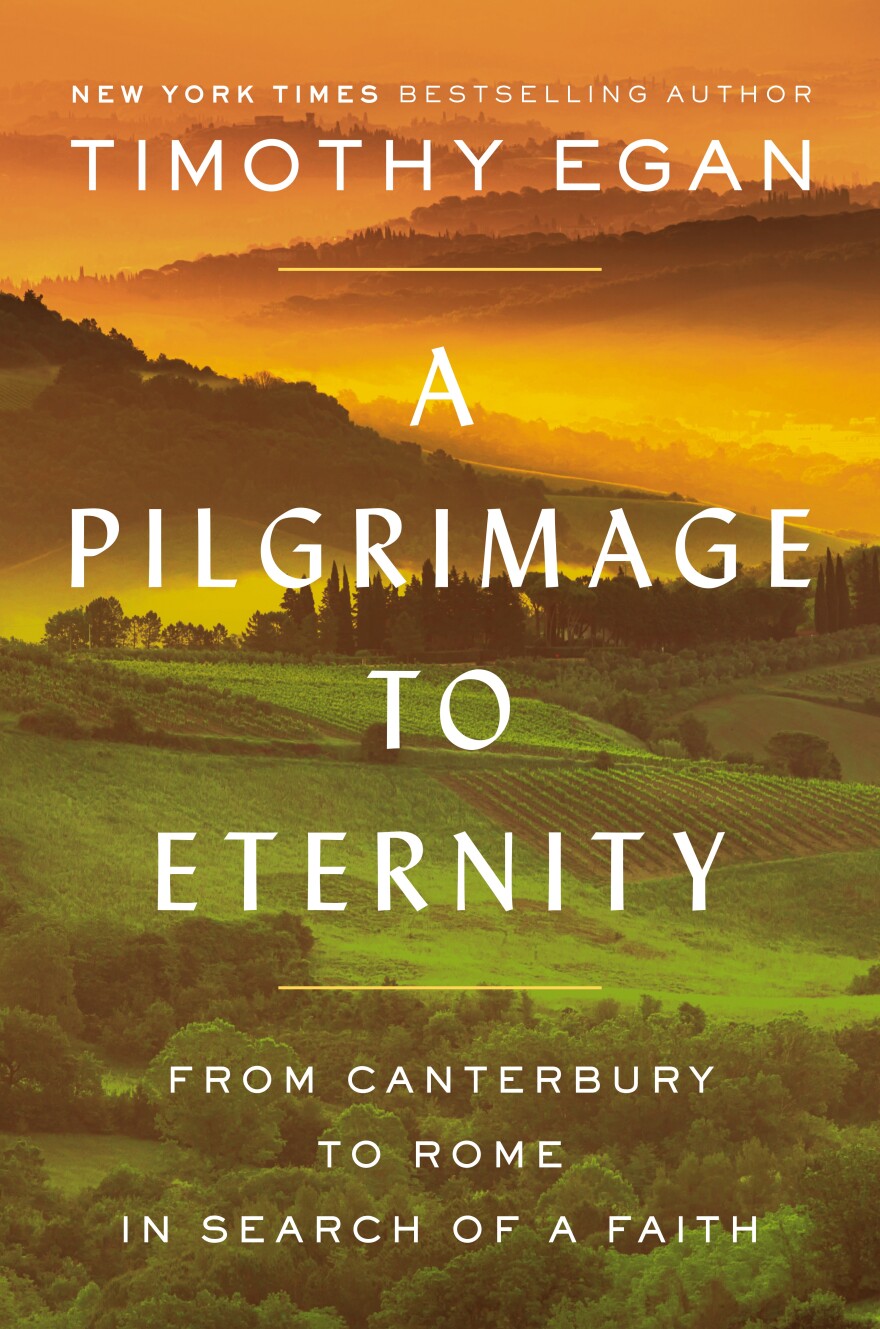Author and Pulitzer-prize winning journalist Timothy Egan often delves into history with his writing. He did so in his personal life, too. Prompted by his Irish Catholic family's complicated history with the church, Egan decided to find answers by walking one of the oldest pilgrimage trails in the world, taking him from Canterbury to Rome and a hopeful audience with the pope.

KMUW's Beth Golay spoke with Egan about his new book, "A Pilgrimage to Eternity" -- a personal journey he's been reluctant to tell before now.
Egan will be in Wichita on Thursday, October 24 for a 6 o'clock book talk at Watermark Books.
Interview Highlights
Beth Golay: You are known for your creative nonfiction, your book about the Dust Bowl--The Worst Hard Time. This, too, is a work of nonfiction. The title is "A Pilgrimage to Eternity: From Canterbury to Rome in Search of Faith." So even though this is creative nonfiction, it's a bit of a departure because it's personal. So why did you decide to go on this pilgrimage? What was going on in your life at that time?
Timothy Egan: You know, I decided to follow the Via Francigena, which is an older pilgrimage, was once the most popular. It's about eleven hundred miles. It's through glorious country. It's through extraordinary shrines, places where so many events happened. And I was motivated by a sense of... I felt complacent in my beliefs, I felt that I hadn't pushed myself. I was motivated by my mother's death. She was a very devout Catholic, and on her deathbed, she said she wasn't sure what was ahead. She had her doubts. That sort of percolated down in me and popped up later. And then it's [under the Trump era] where so many of our assumptions about our institutions have been shaken. I wanted to look for something more durable.
And you chose this route because, did you write in the book that it was more of a "thinkers" route where people contemplate along the way? Is that right?
Exactly, Beth. The Via Francigena is sometimes called the thinking man's pilgrimage, or thinking person's pilgrimage. And gaining in popularity, again, even as religion is declining in Europe, one of the terms I heard when I was out on the trail and really applies to is this term of deep walking, where, you know, every day you're out walking towards something, sometimes you're not even sure. But it gives you a chance to think and to press these issues. And this is not a rich person's pursuit either. I've met a lot of students, a lot of teachers, you're staying in monasteries, you're staying in hostels, you're staying in people's homes. Sometimes you're staying in hotels, but you're trying to move towards something. In my case, I was trying to resolve and really think through these issues through this process of deep walking. And before I got injured, I would try to do about 18 to 20 miles a day.


